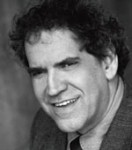By Rabbi Michael Leo Samuel

CHULA VISTA, California — So long as the Ultra-Orthodox rabbis in Israel act as though they are the only true Jewish leaders, I think rebuilding the Temple would only serve to divide and not unite the Jewish people. With a fractured Jewish polity, what good would rebuilding the Temple be if Jews continue to be discriminated against in the Holy Land?
Although certain rabbis—most notably represented by Maimonides—held that human beings must initiate the rebuilding the Temple, one must wonder: Should rebuilding the Temple occur if it is going to only add to the division that divides Jews from other Jews? Rashi—medieval Judaism’s greatest commentator, explains that in his opinion, God Himself would have to make the new Temple appear—literally out of the air, for it to have his support. Given the Jewish/Muslim problems we experience in this age, that probably is not an unrealistic solution—especially when compared to Maimonides’s alternative!
At any rate, it is important to the Jewish people to work on building bridges for better communication and not use the opportunity to tear them down.
It often amazes me to see how much political friction occurs between the Ultra-Orthodox and the other branches of Judaism. In the past, the stalwarts of Orthodoxy picked on the Reform and Conservative Movements, but not anymore. Today, even the Modern Orthodox are not immune to the barbs and polemics of today’s Haredi and Hassidic communities, as we see in the recent attempt to nullify Rabbi Haskel Lookstein’s conversions— as if it were an anti-preparation for the holiday of Tisha’b’Av.
A word about Jewish history that everyone ought to know . . . The Ninth of Av is a sad day for many reasons. This day is a haunting reminder that we have a long way to go when it comes to learning from the mistakes of our collective past. The two temples in Jerusalem were destroyed on this day. According to tradition, the first took place in the year 586 B.C.E. and the second in 70 C.E. The date also marks the crushing of the Bar-Kochba Revolt in 135 C.E.
When compared, of the two destructions, the loss of the Second Temple was a much more serious blow for the Jewish people—one which has taken the longest time for our people to get over.
One of the greatest heroes to emerge in Jewish history, was Rabbi Yohanan ben Zakkai who lived through the siege of Jerusalem by the Roman general Vespasian, and, after Vespasian became emperor, by his adopted son, Titus, who burned the Temple in 70 C.E. During the siege by Vespasian, Rabbi Yohanan made his way to the Roman, who granted his request for “Yavneh and its Sages.”
For this and regulations he issued and principles of conduct he laid down, Rabbi Yohanan is credited with having preserved Judaism and, hence, Jewry after the destruction. It remains somewhat unclear: Was Rabbi Yohanan a part of the “peace party”? Was he a Jewish liberal? I personally think he was just a realist. To date, there is no incontestable evidence proving actual political view. Yet, compared to the fanatics of his era, R. Yohanan stands out as a voice of reason and reconciliation.
What we know, from four variant accounts, is that when all seemed lost, Rabbi Yohanan made his way to Vespasian—the soon to be future Roman Emperor—and asked for Yavneh, the seat of a beit din (a Jewish court) and the home of a group of leading Sages, and there he reconstituted the Sanhedrin.
There is a fascinating but cryptic story about an incident when Rabbi Yohanan lay critically ill. When his disciples called on him, they found him weeping and asked him why. He replied:
“I am about to be brought before the Supreme King of Kings, the Blessed Holy One, Who lives and exists forever and ever and ever … and two paths lie before me, one to Gan Eden [Paradise] and one to Gehinnom [Hell], and I don’t know along which one I shall be led to.[1]”
Did Rabbi Yohanan really believe that he was destined for retribution in the World of Eternity? Perhaps he should have asked Vespasian to quit his assault on Jerusalem. Perhaps he settled for too little, too late. In all probability, he made the right decision for the Romans wanted revenge. In the centuries leading up to the Judean revolution, Hannibal’s revolt from 183-181, made Rome quake in their boots. Less than a century later, Spartacus, the Thracian gladiator who, along with the Gauls Crixus, Oenomaus, Castus and Gannicus, led a a major slave uprising against the Roman Republic from 111-71 BCE.
Rome had no interest in fighting any more wars against peoples they regarded as inferior to the might of Rome.
If the Jews could intimidate the mighty Empire, surely all the vassal states of Rome would do the same! Therefore, the Romans decided to make an example out of the Jews, and indeed, they killed 2,000,000 of our people—the largest number to be killed prior to the Holocaust. Great people can have great doubts, but Rabbi Yohanan definitely made the right choice! Well, so much for the history lesson!
*
.[1] See T.B. Gittin 56a-b; Avot deRabbi Natan, Schechter edition, A, 4 and B, 6; Eicha Rabbati 1:5.
*
Rabbi Samuel is spiritual leader of Temple Beth Shalom in Chula Vista. He may be contacted via michael.samuel@sdjewishworld.com. Comments intended for publication in the space below MUST be accompanied by the letter writer’s first and last name and by his/ her city and state of residence (city and country for those outside the United States.)